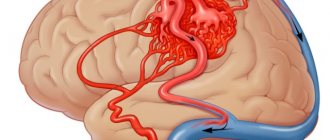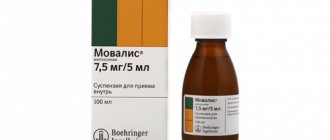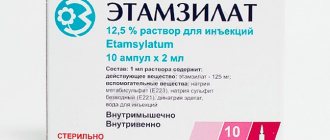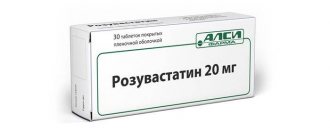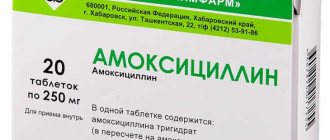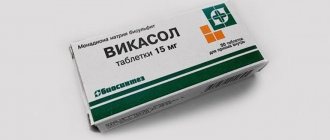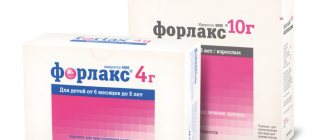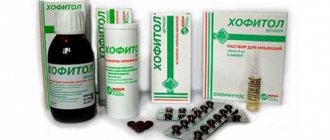Why do we need potassium and magnesium supplements?
The main human organ is the heart. Prevention of its reliable operation is the basis of longevity. Potassium and magnesium supplements can help with this. Potassium balances the myocardial conduction system and controls blood pressure levels. Potassium supplements help maintain electrolyte balance in the human body. Potassium activates the body's enzyme systems involved in biochemical processes, takes part in protein and carbohydrate biosynthesis, and helps replenish the body's energy reserves by transforming glucose into glycogen.
You can replenish the potassium the body lacks with a balanced diet. There are many trace elements in dried apricots, raisins, watermelon, melon, spinach, potatoes, mushrooms, and legumes. A person needs no more than 5 g of microelement/day. About 90% of potassium is absorbed from food, provided there are no digestive problems.
Magnesium breaks down glucose, gives cells endurance, and promotes their renewal. Since the trace element is involved in the synthesis of vitamin B, preparations with magnesium normalize the transmission of neuromuscular impulses in the body, participate in muscle contraction, and stop cramps in the lower extremities.
The combination of potassium and magnesium improves vascular tone (calcium also helps them with this). Magnesium stimulates the body's absorption of potassium. Ideally, the ratio of potassium and magnesium in the human body should be 2:1. This helps protect teeth from destruction, gives bone density, and prevents the development of osteoporosis. Preparations containing magnesium stabilize the cell membrane, allowing chlorine and potassium ions to freely penetrate into cells, which guarantees stable blood pressure and a normal heart rhythm.
There is a lot of magnesium in cabbage, seafood, fish, nuts, and legumes. A person needs at least 400 mg of magnesium per day.
The balance of microelements is important for humans. Excess or lack of potassium and magnesium can have dangerous consequences. Suffice it to say that consuming 14 g of potassium can cause cardiac arrest. Constant overeating of a microelement causes type 2 diabetes mellitus, chronic renal failure, myotonia, arrhythmias, anxiety, uncontrolled polyuria, and diarrhea.
Excess magnesium causes the formation of kidney stones, liver stones, chronic fatigue syndrome, psoriasis, and hyperthyroidism. It is necessary to find the balance of these microelements, but only a doctor can do this professionally. Therefore, uncontrolled “improvement” of the functioning of the heart, blood vessels, and other internal organs by taking potassium and magnesium medications is prohibited.
What are cramps
A sharp involuntary contraction of an individual muscle, group of muscles or part of intramuscular fibers is called a cramp or spasm. This phenomenon occurs spontaneously, lasts from several seconds to several minutes, and its course cannot be controlled. The main reason for the inconvenience that occurs during a spasm is that the process is accompanied by painful sensations that are aching in nature.
Most of the research conducted regarding the nature of seizures boils down to the process being determined by neurogenic factors (associated with the activity of the nervous system), but the origin of pain during seizures remains unclear. Persons with neuronal disorders of the lower extremities, neuropathies, and metabolic disorders are more susceptible to muscle spasms. Convulsive contractions are also observed in healthy people (more often during sleep, during pregnancy or during high physical exertion).
The primary link in the triggering mechanism of muscle cramps is a sharp increase in the excitability of neurons against the background of muscle contraction (stimulation of spasms is impossible if the muscle is not contracted). The most common cases of seizures (during swimming, doing physical exercise, at night) can be explained by a lack of necessary elements in the body or insufficient nutrition of brain tissue. The main causes of muscle spasms include:
- deficiency of microelements (potassium, magnesium, calcium, sodium);
- poor circulation in the muscles;
- chronic diseases (thrombophlebitis, atherosclerosis, varicose veins, renal failure, obliterating endarteritis);
- endocrinopathies and pathologies of the thyroid gland (diabetes mellitus, thyroiditis, hypothyroidism);
- dehydration (a direct connection has not been confirmed by research, but a relationship between the condition and the leaching of sodium chloride from the body has been identified);
- increasing the intensity of physical activity or increasing its duration (explained by a lack of oxygen entering the brain; as the body adapts to the stress, the spasms stop);
- abuse of foods and substances that interfere with the absorption of elements that regulate muscle fiber contraction (alcohol, tobacco, caffeine-containing drinks);
- swelling and toxicosis during pregnancy;
- severe stress, psychophysiological disorders (stimulation of nerve cells occurs);
- monotonous movements repeated over a long period of time.
An increase in the electrical excitability of nerve cells and muscle contraction can occur in skeletal or smooth muscles (vascular walls, bronchi, intestines or esophagus). In the first case, motor activity suffers, in the second, the functioning of internal organs is disrupted, which manifests itself in the form of angina pectoris, broncho- or cardiospasms. Convulsive manifestations are variable and can be mild or very severe. The most dangerous type in terms of possible complications is an epileptic seizure.
Indications for use
Potassium and magnesium preparations can be used only if there is an established deficiency of microelements and there is a risk of developing cardiovascular pathology. This can be determined using a blood test for electrolytes. Promote the loss of microelements:
- dehydration of various origins: diarrhea, vomiting, frequent urination;
- excessive salt intake (more than 5 g/day);
- taking diuretics;
- tumors;
- hyperhidrosis (high physical activity, heat, work in open-hearth shops, baths;
- contraceptives.
Medicines with potassium and magnesium are designed to eliminate the deficiency of elements; drugs are prescribed for cardiac ischemia, heart failure, stroke or heart attack, arrhythmias of various origins, as well as:
- auxiliary therapy during treatment with cardiac glycosides;
- disruption of the absorption of microelements in the intestines (injections or suppositories), gastrointestinal diseases;
- diabetes mellitus;
- atherosclerosis;
- hypertension;
- anemia;
- blood diseases;
- insufficient liver and kidney function.
Help for the heart
Many people do not know how to choose potassium and magnesium supplements for the heart, when and why to take them. Preparations with potassium and magnesium are important for the heart, so they are prescribed in combination in the treatment of cardiac diseases and for the prevention of diseases. Microelements regulate the functioning of cells and tissues. A sufficient amount of substances in the body reduces the risk of developing heart rhythm disturbances, stroke, and arterial hypertension.
Magnesium is involved in the production of nutrients, relaxes blood vessels, and helps the functioning of muscles and nerves. Restores energy, calms nerves, helps fight insomnia. The substance helps improve digestion, relaxes and contracts muscles. Actively transports potassium and calcium ions, promotes the development of bone structure. Together with calcium, it maintains blood pressure levels and prevents hypertension.
Among the medicines containing calcium and potassium, there is an inexpensive analogue of Asparkam. Differs in indications, dosage, use and contraindications. Contains potassium aspartate and magnesium aspartate, but fewer additional components. The medicine is prescribed for angina pectoris, necrosis of the heart muscle, and rhythm disorder. It is administered intravenously for arrhythmia due to a heart attack.
Contraindications include dehydration and complete block of cardiac conduction. Side effects occur in the form of muscle weakness, hypotension, and vein thrombosis. Use caution when taking with other medications. Increases the side effects of antiarrhythmics. Plasma potassium increases when mixed with anti-inflammatory drugs and beta-blockers.
In case of pathology of the digestive organs, astringents and enveloping agents are taken, therefore the effect of Asparkam is reduced due to its insufficient absorption. A relatively safe drug is prescribed to pregnant women under strict supervision. During lactation, the baby is transferred to artificial feeding.
When drugs are contraindicated
Since potassium and magnesium preparations are dangerous with serious consequences, medications are prescribed with caution, taking into account absolute contraindications:
- end stages of functional renal failure (especially in elderly patients);
- complete heart block;
- adrenal gland damage;
- excess potassium or magnesium in the body;
- myasthenia gravis in severe form;
- hypotension, VSD of the hypotonic type;
- acidosis (decreased blood pH).
In addition, since the development of hyperkalemia is possible when taking potassium and magnesium preparations, medications are limited in use in cases of impaired amino acid metabolism in the body, dehydration, hemolysis (destruction of blood cells), pregnancy and lactation, taking antibiotics, potassium-sparing diuretics, angiotensin inhibitors, NSAIDs.
Potassium chloride for injection
Potassium chloride is used as an injection solution. The reason for its prescription is considered to be a decrease in the level of potassium in the plasma due to:
- Vomiting or diarrhea;
- Excessive mineral loss due to hyperaldosteronism;
- Polyuria due to renal disorders;
- Use of certain medications (cardiac glycosides).
In addition, potassium chloride is indicated for certain types of heart rhythm disturbances, myoplegia.
Obstacles to the administration of potassium chloride are considered to be severe disorders of the excretory function of the kidneys, complete AV block, an increase in serum potassium regardless of the cause, disorders of electrolyte metabolism, exacerbation of pathology of the digestive system, adrenal insufficiency, and the use of potassium-sparing diuretics.
Potassium chloride is injected into a vein, and the dosage and treatment regimen are set by the doctor individually based on the cause of the pathology, the initial level of the element in the blood, the condition of the kidneys and heart. A single dose is 25-50 mEq.
When using potassium chloride intravenously, the following side effects may occur:
- Loss of sensitivity, crawling sensation in the arms and legs;
- Muscle weakness;
- Heart rhythm disturbances up to asystole;
- Confusion.
When the drug is administered into a vein, cardiac dysfunction is more pronounced; when taking oral forms, changes in the gastrointestinal tract (nausea, vomiting) are more pronounced.
In no case should potassium chloride be taken with potassium-sparing diuretics or other drugs containing potassium; the drug should be combined with caution with antihypertensive drugs from the group of ACE inhibitors and non-steroidal anti-inflammatory drugs due to the risk of hyperkalemia.
When treating with potassium chloride, plasma potassium concentrations and electrocardiogram readings, as well as acid-base balance, should be carefully monitored. Particular caution should be observed when prescribing the drug to patients with impaired renal filtration, as they may experience a sharp increase in the mineral in the blood with the risk of death.
An increase in the level of potassium in plasma due to renal failure or excessively rapid administration of the drug can result in cardiac arrest, but symptoms of hyperkalemia may be absent. If the permissible dosage of potassium chloride is exceeded, a solution of sodium chloride, dextrose with insulin is administered intravenously or orally, and in severe cases hemodialysis may be necessary.
It is better not to use the drug for children and pregnant women, since the safety of such treatment for these categories of people has not been established, and the risk to the fetus may be higher than the expected benefit for the pregnant woman. If you need to administer potassium chloride to nursing mothers, you should stop feeding for the period of treatment, since excess potassium can enter the baby’s blood with milk.
Potassium chloride can be part of a solution containing glucose or dextrose - a polarizing mixture. The mixture contains insulin in addition to potassium chloride and glucose; it is administered for cardiac pathology (heart attack, arrhythmias).
List of drugs in tablets
Microelements potassium and magnesium, with a balanced diet, are regularly supplied to a person with food and cover the daily need for them. Therefore, there are not many drugs that regulate the concentration of elements in the body.
Panangin
The most popular is Panangin, which controls the normal functioning of the heart muscle.
This is the most convenient medicine to take at home. Panangin tablets are coated with a special coating that prevents irritation of the mucous membrane of the digestive system. The drug, which contains potassium and magnesium in optimal proportions, belongs to the middle price segment of drugs of this type. Produced in Hungary. The essence of the action is to restore the concentration of microelements when they are lost as a result of pathological processes occurring in the body or during long-term use of diuretics: Furosemide, Torasemide, Diacarba.
If the patient is undergoing therapy with potassium-sparing drugs (Amiloride, Triamterene, Veroshpiron, Triampur), or Indapamide, Hypothiazide, no additional use of Panangin is required.
Panangin quickly and reliably stops arrhythmia, including atrial fibrillation and paroxysmal. As part of complex therapy, Panangin relieves atrial disturbances in heart contractions, so the drug is often prescribed to elderly patients to prevent increased attacks of existing extrasystole, paroxysms against the background of low potassium content in the blood. The drug also works for angina pectoris and hypertension. Panangin reduces the severity of undesirable effects during treatment with cardiac glycosides.
It is dangerous to prescribe medicine for:
- muscle weakness;
- decreasing acidity pH;
- a sharp drop in blood pressure;
- atrioventricular block;
- hemolytic disease;
- metabolic disorders.
Panangin is not compatible with NSAIDs, antihypertensive drugs, cyclosporines, if the body has a normal level of potassium (constant monitoring of blood electrolytes is required). The price for Panangin is 144 rubles.
Panangin forte
This potassium and magnesium preparation has an enhanced effect due to the dose of active components. If regular Panangin contains 140 mg of magnesium and 158 mg of potassium, then “Forte” contains a double dose: 280 mg and 316 mg, respectively. A significant difference between regular Panangin is its release in a solution for infusion. The price of “Forte” is 322 rubles.
Asparkam
Domestic analogue of Panangin. A cheap drug, it contains potassium and magnesium aspartate in a concentration higher than that of Panangin, but lacks a protective shell, therefore it irritates the gastrointestinal mucosa and is used only with meals. Indications and contraindications are similar to Panangin. Cost – 41 rubles.
Analogues of Panangin are: Asparkad, Pamaton, which have lost their relevance. Potassium-magnesium aspartate, which has the same composition, is used in emergency situations in an IV (129 rubles).
Orocamage
A representative of potassium and magnesium preparations for the heart is a capsule version of the medicine. The main purpose of Orocamaga is to relieve attacks of supraventricular extrasystole and unstable angina, therefore capsules are used only for treatment in a hospital. The medicine is not available in pharmacies. Cardiket, which improves myocardial nutrition and oxygen supply to the heart muscle, can replace it in your home medicine cabinet.
Magnerot
The drug is classified in its action as a means for the prevention of arrhythmias or relief of attacks of cardiac arrhythmia, although it contains only magnesium ions. The fact is that Magnerot improves metabolism, promotes optimal absorption of potassium ions already present in the body, and works as a catalyst for biochemical processes. At the same time, it exhibits the properties of a regenerator.
The purpose of Magnerot is to eliminate ari injured cardio- and angiocytes. Price – 252 rubles.
Kudesan
A dietary supplement whose active ingredient is ubidecarenone based on coenzyme Q. The drug contains a lot of potassium, magnesium, and vitamin E. In fact, it is a powerful antioxidant that rejuvenates the body by removing free radicals. Potassium and magnesium in the product correct the functioning of the heart and blood vessels, control blood pressure and heart rate. Cost – 396 rubles.
Kudesan
Another product has appeared in the line of dietary supplements - Kudesan. The food supplement contains coenzyme Q 10, vitamin E – Tocopherol. The coenzyme is synthesized in the liver, but by the age of 50 its amount decreases. Kudesan replenishes the deficiency of Q 10. The product is available in drops, chewable tablets for children, and a solution for internal use.
Composition of Kudesan tablets for adults (mg):
- active ingredient Ubidecarenone (coenzyme Q10, Ubiquinone) 7.5 mg,
- potassium 97,
- magnesium 16.
Directions for use: 2 tablets per day with food for a month. Potassium and magnesium support the function of the heart and blood vessels. The drug is used for coronary heart disease, atherosclerosis, and chronic fatigue. Kudesan is contraindicated for pregnant women and nursing mothers. Manufacturers claim that the product fights free radicals, therefore prolonging youth and delaying old age for a long time.
Vitamins potassium magnesium in tablets
The microelements potassium and magnesium are so important for normal human life that they are produced in the form of vitamin complexes that are safe in concentration (containing recommended daily doses).
The purpose of vitamins with magnesium and potassium is the prevention of cardiovascular pathologies for patients of different ages. The most popular multivitamins are Doppelhertz Active Magnesium + Potassium. It is considered a dietary supplement, in its action it is a complete analogue of Magnerot. Available in effervescent tablets, it is involved in the transformation of glucose into glycogen, stimulates protein synthesis, maintains vascular tone and smooth muscles. Costs 191 rubles.
Other similar vitamin complexes with potassium and magnesium:
- Alphabet Classic – 266 rubles;
- Evalar Forte – 260 rubles
- Perfectil – 636 rubles;
- Multi-tabs classic – 437 rubles;
- Teravit – 394 rubles;
- Vitrum Centuri – 424 rubles;
- Makrovit – 171 rubles;
- Duovit – 186 rubles;
- Complivit – 120 rubles;
- Medivit – 5,890 rubles;
- Supradin - 333 rubles;
- Nature's Way – Alive! Max3 Daily – 2,226 rubles;
- Optimum Nutrition – Opti-Men – 2,539 rubles;
- Nature's Bounty – Calcium, Magnesium, Zinc – 305 rubles.
Why does the body need magnesium and calcium?
Magnesium and calcium are those microelements that affect more than 300 processes occurring in the body. The full functioning of the nervous and cardiovascular systems, as well as the production of special cells - phagocytes, which protect the immune system from attacks by pathogenic bacteria, viruses, and microbes, depend on magnesium.
Calcium is considered the main building material for bones: it is impossible to imagine human growth and the formation of a strong skeleton without a sufficient amount of calcium.
It is calcium that actively participates in the process of blood clotting, ensures good blood pressure, and also stimulates the work of neurotransmitters, the production of hormones, and regulates many intracellular processes.
A lack of magnesium and calcium can be signaled by completely different symptoms - from a sharp deterioration in mood, to cramps, to a feeling of constant fatigue.
Nerve impulses in humans are transmitted by the movement of ions of important minerals (and vitamins with magnesium and calcium are mainly involved in this). When they are deficient, these processes slow down, which immediately “hits” many systems.
For adults
Starting from the age of 11, the body's need for magnesium and calcium is 1200 mg per day, and the norm increases for pregnant women, weakened people, and the elderly. You should not think that microelements are easy to obtain from food: many foods that a person eats at the same time as those rich in magnesium and calcium prevent them from being absorbed.
For example, this is coffee, alcohol, products containing oxalic acid. Certain medications (the popular aspirin) also interfere.
Balance is very important: if a person takes little magnesium, then the body “does not take in” calcium, and it is washed out. The optimal balance is 2:1, which is difficult to achieve even if you plan your diet wisely, relying on cottage cheese and milk.
The consequences of micronutrient deficiency include:
- frequent dizziness;
- feeling of loss of balance;
- joint pain, tingling in the muscles of the legs;
- muscle cramps (especially at night);
- black spots before the eyes, involuntary blinking of the eyelids.
In addition, the person feels constant mood swings and either cries or laughs for no apparent reason. He experiences problems concentrating, complains of lack of vitality and may even become depressed.
Your appearance also suffers from the lack: your nails become brittle, your hair splits and falls out at an alarming rate, and caries appears in your teeth. Meteosensitivity also manifests itself: sometimes gray rainy days are depressing, sometimes too bright sun causes irritation.
At home, magnesium deficiency is determined as follows: strain and stretch the leg muscles. Mild cramps, heaviness and pain in the legs or ankles may be a signal of a lack of these important microelements.
For children
From birth, vitamins with magnesium and calcium must be present in the child’s diet. The daily requirement for infants is from 600 mg, and for children under 6 years of age it is almost equal to an adult – 1000 mg.
Many parents complain about the child’s hyperactive behavior and reluctance to obey, but few realize that even this is often a magnesium and calcium deficiency syndrome.
The problem is especially acute in adolescence, among schoolchildren, when they are tired of the stress of the educational process and often experience stress.
As a result, everything can lead to sudden changes in behavior when the child:
- becomes pugnacious;
- often conflicts with peers;
- gets irritated for no reason, even to the point of hysterics;
- complains that he has nightmares.
At the same time, memory deteriorates, growth and development slows down, teeth quickly deteriorate, and nails break.
Psychologists say that children who experience a chronic lack of microelements, growing up, are more likely to try nicotine and alcoholic beverages and get used to them faster.
At the same time, it is not always possible to force a child to eat properly in order to compensate for the lack of vitamins with food, especially since microelements are better absorbed precisely with each other. The solution is to take a balanced complex of vitamins with magnesium and calcium.
Injectable drugs
Potassium and magnesium preparations can be administered parenterally into the body only through a dropper: Potassium and magnesium aspartate, Panangin, Asparkam. Riboxin based on inosine acts similarly.
In this way, arrhythmia can be stopped in emergency cases. The solution entering the vein by drip normalizes metabolism at the cellular level, the balance of electrolytes and fluids in the tissues.
Droppers are most often prescribed to patients with arrhythmia from an overdose of cardiac glycosides. Such administration is prohibited for patients with anuria, pathology of the adrenal cortex, hypotension, dehydration, acidosis, heart block, and myasthenia.
Other indications for these drugs
- Magnesium sulfate or magnesia is an antihypertensive drug that reduces swelling of the vascular wall, lowering blood pressure. For a long time it was used as a drug to relieve hypertensive crises, including in pregnant women. Today it is mainly used as a means of successfully lowering intracranial pressure when administered intramuscularly.
- Magnesium sulfate powder is a laxative that increases the passage of bile, due to the bile acids of which a laxative effect is realized. Previously, it was popular to perform liver tubing. Drinking magnesium sulfate and lying on the right side on a heating pad. Today this is not practiced, since the use of ursodeoxycholic acid drugs is more effective.
- In droppers, magnesium sulfate is used in pregnant women to reduce edema and as a tocolytic, reducing uterine tone. Potassium and magnesium preparations are also included in the composition of polarizing mixtures, which today anesthesiologists call “paralyzing” and are not seriously considered.
Thus, magnesium and potassium preparations today have more of an auxiliary value and are intended primarily to provide replacement therapy for the lack of these microelements in the body. Which drugs are better, and in general the advisability of taking them, should be decided only by the attending physician, taking into account the given clinical situation in a particular patient.
Literature
- Serov I. S., Blokhina I. I., Shagina V. N. The role of magnesium and potassium in the development of cardiovascular pathology // Young scientist. - 2019. - No. 37.
- Baryshnikova G. A., Chorbinskaya S. A., Stepanova I. I., Blokhina O. E. Potassium and magnesium deficiency, their role in the development of cardiovascular diseases and the possibility of correction. ConsiliumMedicum. 2019
- Shilov A. M., Melnik M. V., Osiya A. O., Lishuta A. S. Potassium and magnesium preparations in the treatment of cardiovascular diseases in the practice of a primary care physician. Rational Pharmacotherapy in Cardiology. 2010
- Del Gobbo LC, Imamura F, Wu JH et al. Circulating and dietary magnesium and risk of cardiovascular disease: a systematic review and meta-analysis of prospective studies. Am J Clin Nutr 2013.
Lyudmila Zhavoronkova
Higher medical education. 30 years of working experience in practical medicine. More about the author
All articles by the author
Excess and deficiency of potassium in the body
When there is a lack of potassium in the body, it is replaced with sodium. High salt consumption leads to the fact that the substance indicator always exceeds the norm. Water is retained in the body, cells become oversaturated with water, and swelling occurs. It is difficult for the heart to contract. If there is not enough magnesium, a spasm occurs.
Such processes lead to chest pain, arrhythmia, and increased blood pressure. All organs and systems suffer from oxygen starvation. The throughput of the heart decreases. A person feels constant fatigue and limb cramps. The load on the heart causes pain. You need to see a doctor to get examined and get a prescription from a therapist.
Magnesium and potassium preparations in tablets for the heart are necessary to maintain the body, however, the substances should not be in excess so as not to cause cardiac arrest. The patient experiences muscle weakness, constant irritability, and heart rhythm disturbances. Excess potassium leads to arrhythmia and muscle atrophy.
Hyperkalemia occurs against the background of insulin deficiency, renal failure, and impaired potassium metabolism. With an excess of the substance, such features in the body as arrhythmia, increased excitability, colic, frequent urination, and sweating are characteristic. If the problem is not resolved in time, diabetes develops.
Instructions for use
The average daily potassium requirement is estimated to be at least two grams. However, the exact dosage must be assessed depending on the patient's age and general health. The human body contains about 130 grams of potassium.
The patient is recommended to take two to three tablets of the drug containing potassium twice a day. In some cases, the drug is administered intramuscularly (ampoules) or intravenously (injections with solution). This is equivalent to a daily dose of four to six heart tablets. The exact dosage of a medication containing this combination can only be determined by the attending physician.
It is recommended to replenish magnesium or potassium deficiency if hypomagnesemia is diagnosed. In other cases, the combination drug will not be effective enough in the treatment of diseases of various etiologies.
List of trade names of combination preparations containing potassium and magnesium:
- Panangin (inexpensive drug);
- Cardioactive Evalar;
- Panangin plus vitamin B6;
- Doppelhertz Active (effervescent tablets with magnesium and potassium).
What influences the choice of drugs
So, how do you determine which magnesium supplement is best?
Today there are quite a lot of medicines that contain this element in pharmaceuticals. They differ from each other in their release form, the total amount of elemental substance, bioavailability, and at the same time their combination with other components, most often with vitamin B6. The presence of this substance in its pure form in a medicinal product directly depends on which chemical compound was used by the manufacturer as a source.
Thus, when choosing a drug, it is advisable to compare not the amount of the compound, but the content of the pure substance. Unfortunately, manufacturers do not always indicate this. The degree of absorption of magnesium compounds may also vary. Inorganic compounds include oxide along with hydroxide, sulfate, and chloride. Pidolate with citrate, lactate, gluconate, aspartate, ascorbate, salicylate, glycinate and orotate are considered organic.
There is a very common belief that organic compounds of this element are better absorbed from the digestive system than inorganic ones. However, the results of the studies do not always confirm this point of view. Confirmatory tests are sometimes not performed correctly.
If you delve deeply into the study of the form of magnesium, you can come across sources that highlight lactate as the best compound in terms of absorption, while others talk about citrate, others about glycinate, so there is no consensus here. Carbonate and sulfate are absorbed worst of all; this information is often repeated in different sources, so it is better not to pay attention to these forms.
Many people advise choosing products with magnesium oxide and vitamin B6 from the manufacturer Solgar. They are recommended because in this form there is the greatest presence of pure magnesium (that is, the minimum amount of all kinds of unnecessary impurities), and it has decent bioavailability (this is evidenced by a significant improvement in laboratory parameters during use).
We will consider the rating of the best magnesium preparations below.
Benefits of the potassium element
Potassium became known in ancient times. In those days, this element was widely used in the chemical industry and medicine. Its benefits are:
- normalization of the functioning of the gastrointestinal tract;
- creating a normal ratio of water and electrolytes in the body;
- production of protein particles;
- transformation of glucose particles into glycogen particles.
The daily norm of the element for humans is from 3 to 5 mg. However, dietary adjustments do not help to fully nourish the body, and therefore a lack of mineral substances occurs.
How does the lack of an element manifest itself?
A decrease in the amount of a substance can be easily determined by the following symptoms:
- increased drowsiness;
- chronic fatigue;
- muscle weakness;
- increased urge to urinate;
- hand tremor;
- cramps in the legs;
- slow heartbeat;
- reduced blood pressure levels.
To confirm potassium deficiency, it is enough to conduct a blood test. If a person is healthy, its amount will be equal to 3.5 mmol/l.
What are the dangers of potassium overdose?
Potassium overdose is extremely rare. It is usually accompanied by symptoms such as:
- disorientation;
- dizziness;
- nausea;
- dyspeptic disorders;
- arrhythmia;
- decreased blood pressure;
- coma.
Often, an excess of potassium is indicated by the presence of erosive gastritis, intestinal ulcers, heart and respiratory failure. The reasons for the development of this condition are:
- improper use of potassium medications;
- drinking large quantities of mineral waters containing potassium salts;
- lack of insulin;
- kidney diseases;
- hormonal imbalances;
- long-term diet.
Considering what an excess of the element can result in, you must use drugs containing it, observing the dosage prescribed by the doctor.
Contraindications
Before taking it, it is equally important to familiarize yourself with the contraindications:
- Having sensitivity to any of the ingredients of the drug.
- Presence of severe renal and adrenal insufficiency.
- Phenylketonuria.
- Children under six years of age, as efficacy and safety have not been established.
- The presence of hereditary galactosemia, glucose and galactose malabsorption syndrome in combination with lactase deficiency.
- Concomitant use of levodopa.
Why do we need potassium supplements?
One of the most important metabolisms in the human body is electrolyte metabolism. Potassium plays a leading role in it, since it regulates the water content in cells and participates in maintaining the intracellular chemical composition necessary for normal life. The main property of potassium is the ability to form cellular electrical potential, conduct nerve impulses, contracting smooth muscle, which is part of the structure of almost all vital internal organs and vascular walls.
Due to this, potassium-containing preparations can:
- regulate blood pressure through the sympathetic system;
- increase cell sensitivity to insulin by activating the enzymatic activity of carbohydrate-protein metabolism;
- stimulate the contractility of the heart;
- stop sinus arrhythmias;
- maintain normal functioning of the genitourinary system.
In the body, potassium is in a bound state (up to 98%), localized in cells. Only a couple percent circulates in the blood, actively interacting with other electrolytes. Magnesium is its companion, the element prolongs the effect of potassium in the muscles. Sodium is an antagonist, removing both potassium and magnesium from the bloodstream. The balance between sodium and potassium-magnesium is the basis for the normal functioning of the heart and other internal organs.
With increased stress on the heart, previous infections, weakened immune forces, stress, 2% potassium in the bloodstream is insufficient. Then it is replaced by sodium. This is very simple, since a person gets sodium every day from table salt. But the biochemical processes change radically.
Sodium retains water in the body, the total volume of circulating blood increases, an excess of water occurs in the cells, they swell, and the tissues become pasty. An additional load is placed on the heart, which the myocardium cannot always cope with. Magnesium is also washed out with potassium, vasospasm occurs, blood pressure rises, signs of hypoxia appear, and cramps occur in the legs.
In order not to disturb the potassium-sodium balance, potassium is additionally introduced into the body in the form of tablets or by injection.
Vitamins for seizures
The occurrence of convulsive conditions usually occurs due to disturbances in the transmission of nerve impulses to the muscles. They may also indicate the development of a deficiency of magnesium elements, hypocalcemia and a lack of potassium substances. Typically, the causes of convulsive conditions are:
- dehydration;
- use of laxatives, diuretics;
- improper use of therapeutic fasting;
- frequent intestinal cleansing using an enema.
Certain vitamin products can help improve the condition of seizures.
| Name | Components | To whom is it assigned? | Contraindications | How to use? | Cost (average) |
| "Magne B6" | Magnesium, vitamin B6 | Prescribed for people suffering from increased spasms in the muscular parts of the limbs, irregular heart rhythms, painful conditions of the gastrointestinal tract, sleep disorders, and irritability. | Impaired functioning of the renal system | The product is used two or three times daily. The number of pills is between six and eight each day for several weeks. The injections are used for 7-10 days, the order of their administration is determined by the doctor | Dragee – 580 rubles, injections – 530 rubles |
| "Magnistad" | Children are advised to take 4 to 6 tablets per day if their body weight is more than 20 kg. Adults need to take 6 to 8 tablets per day. Minimum period of admission – thirty days | 316 rubles |
The differences between the products are in several points:
- produced by French - Russian;
- "Magne B6" is available in two forms, and "Magnistad" - only in one.
It is difficult to say which remedy is better. It is worth consulting with a specialist to find out which one to take.
Preparations containing K and Mg
The most famous drugs containing a combination of potassium and magnesium that are used for the heart are panangin and asparkam. They are the ones most often prescribed by cardiologists. Therefore, the information below applies to these two remedies.
Panangin and asparkam
Despite their popularity, these drugs are not without their drawbacks. The most important of them is the low content of microelements. For example, an asparkam tablet contains 175 mg of magnesium (this is about 45% of the daily value) and 175 mg of potassium (this is about 10% of the daily value). A Panangin tablet contains 140 mg of magnesium (35% of the daily value) and 158 mg of potassium (8% of the daily value). Of course, no one is talking about completely covering the body’s needs for these microelements with tablets, but still these quantities are small to eliminate their deficiency in the body. This is why many doctors are quite skeptical about prescribing panangin and asparkam for heart disease. It should also be taken into account that these drugs are used mainly in the countries of the former USSR.
There are other drugs that contain fairly large amounts of potassium and magnesium. It is their use that is justified to eliminate or prevent the lack of these ions in the body. These include:
- Potassium chloride in the form of tablets (Kalipoz Prolongatum, Caldium) or solution for intravenous administration.
- Magnesium oxide tablets or magnesium sulfate in solution for intravenous administration.
Interestingly, these drugs, which contain much more K and Mg than asparkam and panangin, are prescribed much less frequently. The disadvantage is that you need to take two different tablets instead of one.
Vitamins “2 in 1”
Magnesium, calcium and potassium are known to have great benefits for the heart. All complexes containing them are produced in tablets, as well as in ampoule form, which makes them easier to use. Their brief description is given in tabular form.
| Product | What does it contain? | When is it appointed? | Contraindications | How to use? | Average cost in rubles |
| "Panangin" | Magnesium, potassium | Hypomagnesemia, hypokalemia, insufficiency of the heart and blood vessels, infarction | Sorbitol, hyperkalemia, hypermagnesemia, hemolysis, exicosis | The tablets are used three times a day, two pieces each, for a month. The solution is administered dropwise. The drug is indicated for children from birth | Dragees – 130, ampoules – 160 |
| "Asparkam" | Potassium and magnesium aspartate | Arrhythmia, hypomagnesemia, hypokalemia, neurocirculatory dystonia | Dehydration, hemolysis, myasthenia gravis, cardiogenic shock, 2-3 degree atrioverticular block, acute metabolic acidosis, hypocortisolism, oliguria, anuria, allergy to components, insufficiency of the hepatic system, childhood. Contraindicated for women during pregnancy, urolithiasis | Tablets are taken three times a day in quantities of three to six pieces for a month. Injections can only be given intravenously | Dragees – 50, ampoules – 75 |
| "Orocamag" | Potassium, magnesium | Ischemia, extrasystole occurring in the area above the ventricles of the heart | Allergy to components, anuria, abnormal functioning of the renal system | Dragees are taken orally, 4 pieces three times over a month and a half | 125 |
There are often cases when patients are prescribed to take two-in-one products, including calcium and magnesium.
| Name | What's in it? | When is it appointed? | Contraindications | How to use? | Cost (average) |
| "Makrovit" | Nicotinamide, vitamins B, A, E, C, D, calcium pantothenate | Active lifestyle, constant training, poorly designed diet | Pregnancy, breastfeeding | Lozenges three times daily for three to four weeks | 200 rubles |
| "Duovit" | Vitamins A, E, group B, C, D3, PP Calcium, magnesium, iron, sodium, copper, zinc, manganese | Mental, physical overload, active sports, poor health, pregnancy, lactation, heavy menstruation | Allergy, hyperuricemia, gout, erythremia, thromboembolism, children under ten years of age | One red and blue tablet daily. Minimum course of admission – 1 month | 120 rubles |
| "Berocca calcium magnesium" | Vitamins C, B1, B2, B6, B12, biotin, pantothenic acid, nicotinamide, calcium, magnesium | Asthenia, vitamin deficiency, irritability, apathy, anxiety, sleep disorders | Hypermagnesemia, hypercalcemia, urolithiasis, renal dysfunction, hemochromatosis and other conditions | Used for a week to four weeks, one tablet every day | 763 rubles |
Which supplement should you choose?
One of the most popular dietary supplements with magnesium is Camosten from the American manufacturer Santegra. The natural product contains magnesium citrate, calcium, vitamin D and manganese. This combination allows you to get maximum results, since all substances complement each other and are better absorbed.
Camosten, unlike its analogues, has undergone clinical testing and is even included in health programs for children compiled by leading medical specialists in Russia.
As a rule, magnesium is recommended to be taken together with calcium, manganese and vitamin D. Camosten includes all the ingredients, so you do not need to purchase several products and calculate the dosage. It's convenient, fast and profitable!
Magnesium is the most important mineral in the diet for hypertension
Doctors should prescribe medications and dietary supplements containing magnesium to every patient with hypertension and other cardiovascular diseases. Unfortunately, due to their ignorance, they still do this extremely rarely. If you have hypertension, there is an 80-90% chance that you are deficient in magnesium.
Magnesium relieves vascular spasm and relaxes the central nervous system, so during hypertensive crises, patients often receive injections of magnesium - a solution of magnesium sulfate. These injections quickly alleviate the condition of patients. Doctors successfully use magnesium to relieve hypertensive crises, but, unfortunately, they are not yet accustomed to using it in the “regular” treatment of hypertension.
Magnesium is an essential mineral for the cardiovascular system, including for the treatment of hypertension. Magnesium ions Mg2 perform the following functions in the body:
- regulate blood pressure;
- normalize heart rhythm;
- prevent excessive blood clot formation;
- inhibit the formation of atherosclerotic plaques in blood vessels from cholesterol;
- prevent the final stage of atherosclerosis - deposits of calcium “lime” on the walls of blood vessels.
DETAILS: Cerebrovascular sclerosis: symptoms and treatment
Read a detailed article about Magnesium-B6 tablets and find out:
- how magnesium is useful for women, especially during pregnancy;
- products that contain this mineral - a detailed list;
- medicine Magne-B6 and its inexpensive analogues.
Magnesium, calcium, sodium and potassium are trace elements that maintain the body's electrolyte balance. Their ratio in the blood and cells is of utmost importance. Magnesium deficiency means excess sodium and calcium. We performed a blood test for electrolytes in 60 patients with acute myocardial infarction and for control of another 100 healthy people.
Pulse pressure is the difference between “upper” and “lower” blood pressure. The lower it is, the lower the risk of heart attack and stroke. The more magnesium in the blood plasma, the closer to normal the pulse pressure. Also, taking magnesium normalizes the level of hemoglobin in the blood, preventing anemia. This is important because the combination of hypertension and anemia due to iron deficiency is particularly difficult to treat.
Symptoms of magnesium deficiency in the body:
- high blood pressure;
- cardiac arrhythmia;
- muscle cramps and spasms;
- chronic fatigue;
- insomnia;
- irritability;
- constipation;
- in women - severe premenstrual syndrome (PMS).
The longest and largest study of cardiovascular risk factors was conducted in the United States. It involved 88,375 nurses and was followed for 26 years. It turned out that magnesium deficiency in the body increases the risk of sudden cardiac death by 37%. And the lower the concentration of magnesium in blood plasma and red blood cells, the higher this risk. If this mineral is lacking, then cardiovascular diseases are unlikely to bypass you.
Magnesium deficiency contributes to the development of hypertension, arrhythmia, coronary heart disease, myocardial infarction, heart failure, and increased formation of blood clots (blood viscosity). On the other hand, magnesium tablets are a miracle cure for most cardiovascular diseases.
They treat arrhythmia and heart failure, lower blood pressure, and also thin the blood. After a heart attack, treatment with magnesium increases the survival rate of patients. Magnesium, without exaggeration, is the most powerful weapon of cardiologists. It is even more sad that most doctors still do not use this weapon due to their inertia.
- The best way to cure hypertension (quickly, easily, healthy, without “chemical” drugs and dietary supplements)
- Hypertension is a popular way to cure it at stages 1 and 2
- Causes of hypertension and how to eliminate them. Tests for hypertension
- Effective treatment of hypertension without drugs
The main food sources of magnesium are whole grain breads and crispbreads, seeds, nuts, legumes, cocoa, and green leafy vegetables. The harder the drinking water, the more magnesium it contains. Residents of Russian-speaking countries do not have to complain that their tap water is too soft. Usually quite the opposite :).
Contraindications for use and side effects
There are a number of contraindications and side effects associated with these drugs. In addition, negative interactions with other medications are possible, since many drugs can cause an excess or deficiency of these elements important for the body.
Potassium tablets
This element is eliminated by the kidneys, and when they don't work very well, it can accumulate in the body and cause poisoning. People suffering from diseases of the upper gastrointestinal tract and esophagus, stomach and duodenum should take potassium exclusively in liquid form. Pregnant and breastfeeding mothers should avoid taking such drugs.
Possible side effects:
- nausea;
- constipation and sometimes diarrhea;
- pain or discomfort in the abdomen, possible vomiting;
- may cause internal bleeding.
Magnesium preparations
Such drugs are not recommended for patients with renal failure.
They are also contraindicated when taken together with diuretics, antibiotics, certain heart medications, anticancer drugs and anti-osteoporosis drugs.
Why is an excess of these macronutrients dangerous?
This is exactly the case when a lot does not mean good. For example, excessive accumulation of potassium in the body causes the following conditions:
- irregular heartbeat;
- confusion;
- anxiety;
- tiredness or unusual weakness;
- numbness in fingers or toes;
- labored breathing.
Excess magnesium can cause the following symptoms:
- diarrhea with intestinal disorders due to its laxative properties;
- nausea and vomiting;
- decreased blood pressure;
- dry mouth;
- drowsiness;
- muscle weakness;
- in extreme cases, coma or cardiac arrest.
Keep in mind that our kidneys can remove up to 6 grams of magnesium per day, so excess magnesium can be especially dangerous for people with kidney failure.
Medicines for prevention and treatment: characteristics of the drug "Panangin"
All forms of potassium supplements and tablets containing potassium transport the trace element into cells, accelerating metabolic processes. "Panangin" has proven itself to be effective against arrhythmia caused by a violation of the ionic composition. Prescribed for coronary insufficiency to adjust the amount of microelements when taking diuretics.
The pharmacy offers pills and solutions for intravenous injections. It is highly irritating to the digestive organs, so it should be taken strictly as prescribed by the doctor, without increasing the dosage after meals. Contraindications include cardiac arrhythmias, hyperkalemia, and renal failure. "Panangin" is a therapeutic agent that prevents attacks of arrhythmia, expansion of the zone of damage to the heart muscle during an acute heart attack. Reduces complications and mortality from heart failure.
The drug is indicated for post-infarction cardiosclerosis, arrhythmia, angina pectoris. Prescribed for the treatment of glycoside intoxication and diabetes. Potassium-containing drugs are needed after a diuretic, which causes electrolyte losses.
Do not take in case of renal failure, dehydration, hypotension due to shock. Not recommended after detecting an increase in the level of substances in the blood. Use caution when taking with other potassium-containing diuretics. In case of disturbances in the functioning of the gastrointestinal tract, the medicine causes dyspepsia, convulsions, and hypotension. Before the appointment, the doctor writes out a referral for tests to make sure there are no diseases that are on the list of contraindications.
Magnesium preparations
The causes of hypomagnesemia are usually an insufficiently balanced diet, impaired absorption from the intestines, consumption of strong alcoholic beverages, diarrhea, and a painful condition of the renal system. For such conditions, magnesium preparations are prescribed.
| Means | What's in it? | When is it appointed? | Contraindications | How to use? | Cost (average) |
| "Magnerot" | Magnesium | Hypomagnesemia, arrhythmia, developing angina, atherosclerosis, chronic heart failure, infarction, decreased lipid digestibility | Bladder stones, cirrhosis, lactase deficiency, disruption of glucose absorption | The first week the drug is taken 2 tablets three times a day, for the next five weeks - one tablet three times a day | 330 rubles |
| "Doppelhertz Active Magnesium" | Magnesium, B vitamins | Preventive effects and therapy of heart diseases, blood vessels, neurological conditions, stress, physical activity, unhealthy lifestyle, serious illnesses | Pregnancy, lactation | Not a medicine. Use one capsule per day for two months | 360 rubles |
Importance of potassium
The majority of metal anions of this substance are contained in cellular plasma; their deficiency can occur due to the following reasons:
- If a large amount of insulin enters the body, which provokes excessive sodium activity.
- In the case when a person consumes large amounts of food with a high sodium content.
- When a blood transfusion was performed, since red blood cells, being frozen, lose about 50% of potassium.
- In case of diarrhea or vomiting, which provoked the loss of metal ions.
- When a person takes certain medications that contain certain substances that negatively affect potassium.
Potassium is responsible for such body functions as:
- support of the chemical composition of the body's cells, which is carried out due to the sodium-potassium balance;
- maintaining osmotic balance in the body;
- maintaining a stable metabolism;
- maintaining normal acid-base and water balance;
- enrichment of the body with oxygen;
- responsibility for the quality of bone tissue.
In addition to all this, potassium actively helps the heart system and also regulates blood pressure, but that's not all - it helps the intestines work and transmits the reaction from the nerves to the muscles.
Pharmacy workshop
The essential role of preventing magnesium deficiency in the complex therapy of cardiovascular disorders is today considered an axiom. Many drugs containing this macronutrient are available without a prescription. What should the chief captain pay attention to when recommending these products to visitors with cardiac problems?
The enormous importance of magnesium in maintaining normal functions of the cardiovascular system is explained by the presence of the following physiological “options”:
- magnesium is a calcium antagonist. In contrast to Ca2+, it provides relaxation of the smooth muscles of the coronary vessels and the striated muscles of the myocardium. A shift in the balance in the calcium-magnesium system towards the first macroelement leads to vasoconstriction, impaired blood supply and increased tension in the heart muscle, a decrease in ATP synthesis in it, increased heart rate - that is, to the launch of those mechanisms that underlie the development of arterial hypertension, coronary artery disease and other cardiovascular disorders. Sufficient intake of magnesium in the body neutralizes these negative phenomena;
- magnesium inhibits the activation of the renin-angiotensin-aldosterone system (RAAS). Let us recall that excessive activity of RAAS hormones leads to increased reabsorption of sodium and water in the kidneys, increased myocardial contractility due to increased preload on the heart, vasoconstriction, and this creates the preconditions for the development of edema, hypertrophy of the heart muscle, increased blood pressure - the underlying factors pathogenesis of CHF. Magnesium prevents/minimizes these effects;
- Magnesium is able to reduce platelet aggregation, prevent endothelial damage, and has a beneficial effect on the lipid composition of the blood. All this reduces the risk of developing coronary artery disease and atherosclerotic damage to the vascular walls;
- Magnesium plays a large role in maintaining the functions of the central nervous system as a natural anti-stress agent. Its sufficient level in the body prevents increased nervous excitability - the trigger for many cardiovascular diseases.
As a result of the above, medications containing magnesium in sufficient quantities (25–100 mg per unit dosage form) are often recommended as an auxiliary element of therapy for patients with various cardiovascular disorders. This recommendation is especially relevant for cardiac patients with frequent emotional stress, chronic mental and physical stress, unbalanced nutrition, and during the summer heat (all this leads to magnesium deficiency). Finally, magnesium preparations can be considered as a universal means of preventing cardiovascular diseases in individuals with risk factors (age over 40 years, smoking, overweight, high cholesterol, etc.).
REPRESENTATION IN RUSSIA
Magnesium is included in many medications registered in our country (we will leave dietary supplements behind the scenes, since they do not have an evidence base comparable to medications). True, the range of magnesium-containing drugs that have cardiovascular system disorders among their indications is not too wide.
Most magnesium preparations are allowed to be sold without a doctor's prescription. The only exceptions are Asparkam, Asparkam-UBF, Asparkam-Farmak.
The drug Panangin is the only over-the-counter drug in the segment under consideration, included in the List of Vital and Essential Drugs, the ONLS program, as well as in the new Standards for the provision of primary health care for arterial hypertension, Standards for specialized care for heart failure.
CRITERIA FOR DRUG SELECTION
When choosing one or another over-the-counter magnesium-containing drug for the treatment of cardiovascular disorders for a pharmacy visitor, the following properties should be taken into account:
- composition and range of registered indications;
- form of magnesium in the composition of the drug and dosage regimen;
- compatibility with other cardiac drugs;
- admission restrictions.
In the treatment/prevention of CVD, simultaneous intake of magnesium and potassium is advisable, since their combined deficiency is often observed.
According to these parameters, Panangin stands apart among magnesium-containing drugs. In addition to magnesium (in the form of aspartate), it contains potassium (in the form of the same salt). Potassium, like magnesium, performs a wide range of functions in regulating the activity of the cardiovascular system. Being a sodium antagonist, it prevents its accumulation in the body and associated swelling of the vascular walls and myocardium. A normal balance of intra- and extracellular potassium content maintains normal myocardial contractility and prevents ventricular arrhythmia. Potassium normalizes blood viscosity, metabolism, strength and frequency of contractions of the heart muscle.
In the treatment/prevention of CVD, simultaneous intake of magnesium and potassium is advisable, since their combined deficiency is often observed.
Thanks to this composition, Panangin is recommended for use as part of the complex therapy of numerous cardiovascular pathologies - CHF, ventricular arrhythmias after myocardial infarction. There is no doubt that the drug is useful for the primary and secondary prevention of arterial hypertension and coronary artery disease.
For other drugs with magnesium, a wide range of indications “on the topic” is typical for the drug Magnerot: myocardial infarction, angina pectoris, CHF, arrhythmias, dyslipidemia.
As for medications that combine magnesium with B vitamins (Magne-B6, Magnelis-B6, etc.), they do not have comparable experience in using them for the listed diseases. They are used mainly in neurology and gynecology. However, among the cardiological indications in their instructions, rapid heartbeat associated with magnesium deficiency appears.
All of these preparations contain magnesium in organic forms - aspartate (Panangin), citrate (Magne-B6 Premium), orotate (Magnerot), lactate (Magne-B6, Magnelis B6), pidolate (Magne-B6 solution). These salts provide a high level of magnesium absorption in the gastrointestinal tract - in the range of 30–43%. This is significantly higher than that of inorganic forms of magnesium (for example, the famous magnesium sulfate in cardiology is used only intravenously, since when taken orally it practically does not enter the blood). Let us add that the presence of vitamin B6 in a number of drugs additionally facilitates the absorption of magnesium from the gastrointestinal tract.
All magnesium preparations are used on average 2-3 tablets per day. The liquid form is used in the amount of 3-4 ampoules, also 2-3 times a day.
When recommending magnesium supplements to a patient suffering from cardiovascular diseases, it is necessary to clarify what other cardiac medications he is using.
Useful combinations: drugs containing magnesium are advisable to use with thiazide and loop diuretics, since these drugs can cause hypomagnesemia.
Another side effect of diuretics from these subgroups is hypokalemia, so Panangin can be considered an optimal addition to them, which simultaneously eliminates the deficiency of both magnesium and potassium. Panangin is also necessarily used in combination with cardiac glycosides, which cause serious potassium losses and resulting arrhythmias.
Potentially dangerous combinations: drugs containing potassium should not be combined with ACE inhibitors, potassium-sparing diuretics, beta blockers without consulting a doctor, as this can lead to the development of hyperkalemia and heart rhythm disturbances.
All drugs containing magnesium require caution when used in patients with renal dysfunction, as they can lead to hypermagnesemia.
Tablets Magne-B6, Magne-B6 Forte and Magnelis are used with caution for diabetes mellitus, since their shells contain sucrose. This point is important because hyperglycemia is a frequent companion to cardiovascular pathologies and disorders (metabolic syndrome).
It is advisable to use drugs containing magnesium and potassium in conjunction with thiazide and loop diuretics, cardiac glycosides, which cause loss of these macroelements.
www.pharmvestnik.ru
